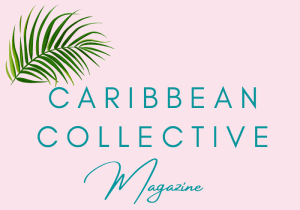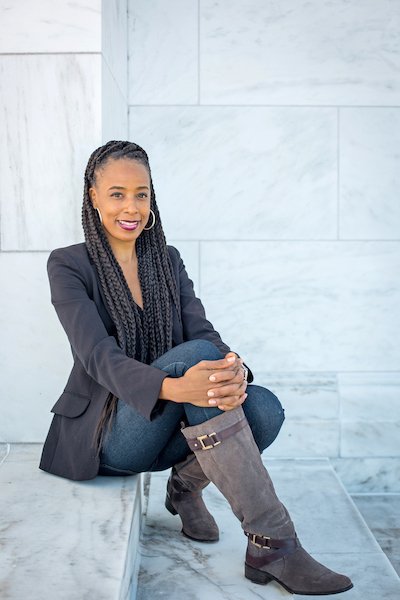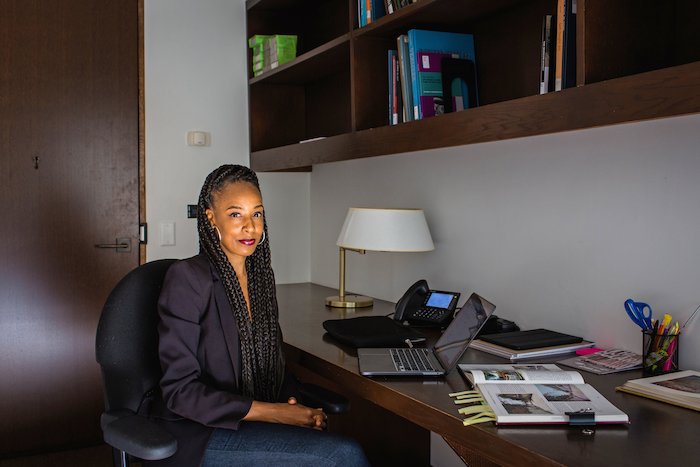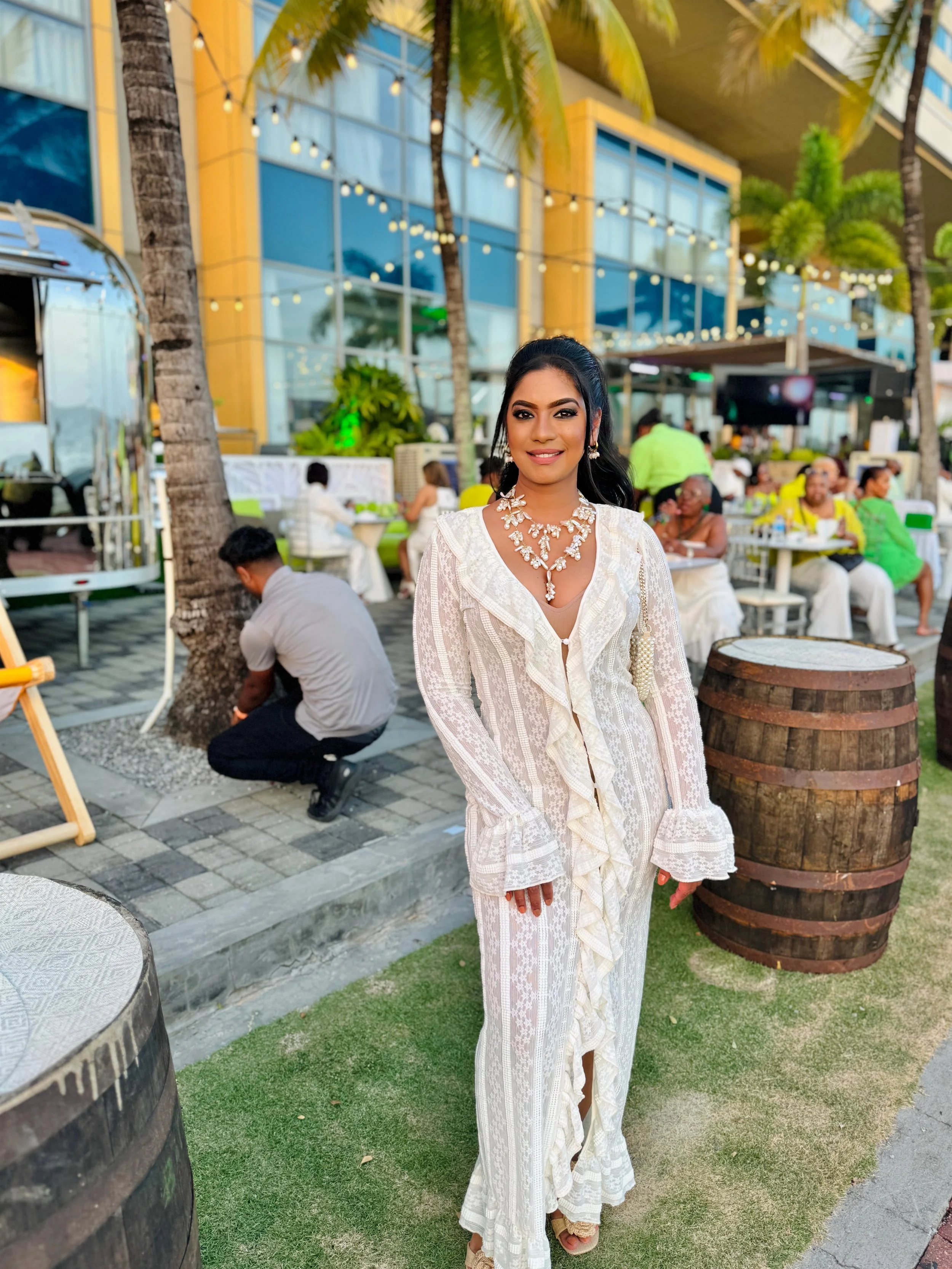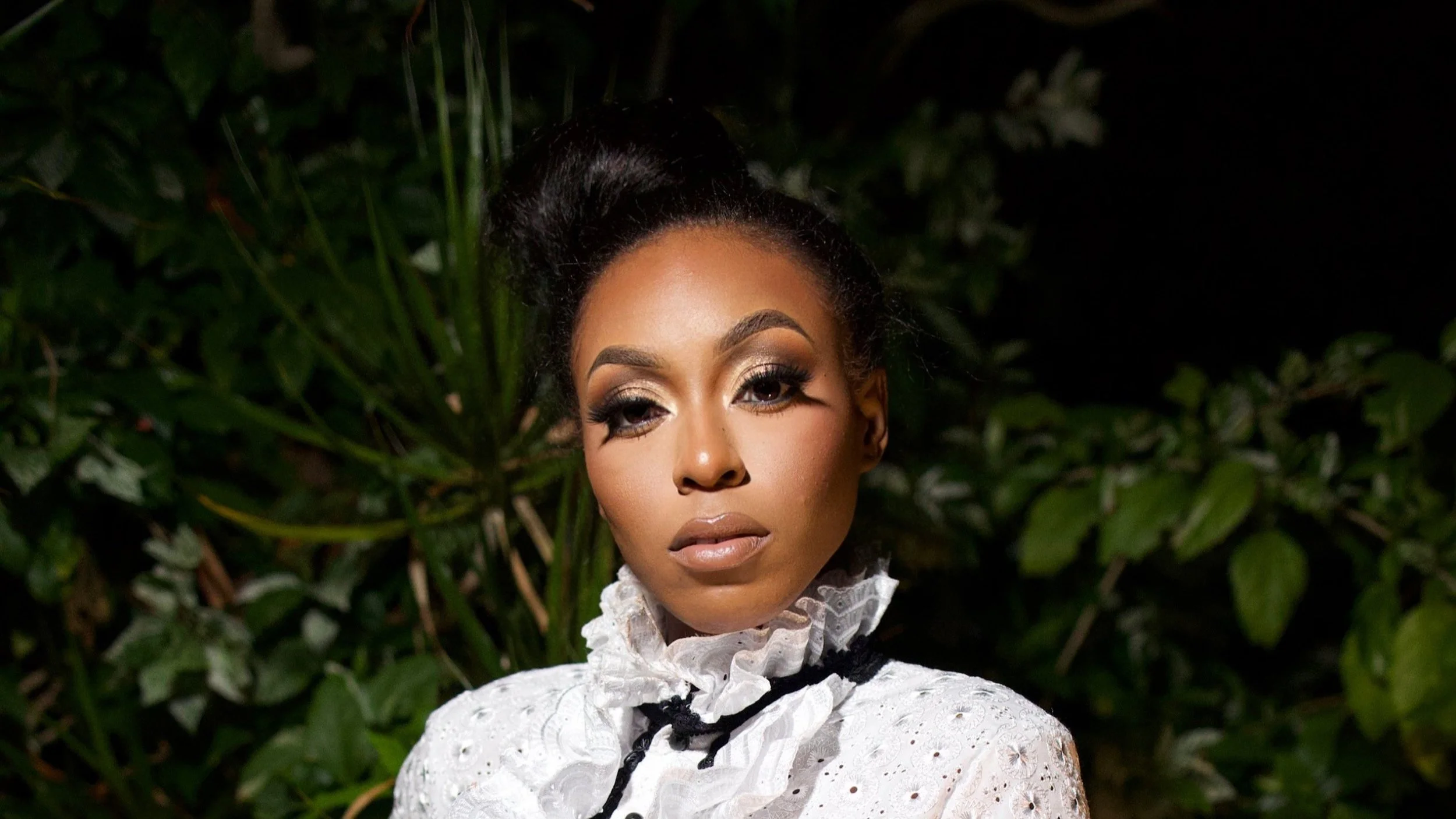Bahamian Professor Returns to Clark Art Institute as a Research Fellow
Photo courtesy of Keisha Oliver
written by CC Magazine
University of The Bahamas Professor Keisha Oliver is on a mission to amplify the lost voices of Bahamian artists and educators in art history.
Oliver who was awarded a Fall 2021 fellowship from The Clark in Williamston, Massachusetts returned in July to continue work on an archival project that documents and highlights these marginalized Bahamian art histories
The Clark is one of a few institutions globally that is both an art museum and a center for research. It offers critical discussion and higher education in visual arts. Its Research and Academic Program (RAP) plays host to a residential fellowship program that attracts top international scholars. RAP has more than 400 Clark fellows from thirty countries.
Oliver’s work reflects two important goals — the revival of interest in Bahamian cultural preservation and the expansion of its scholarship on artistic practices and traditions. Her research project, “Lost Voices in Bahamian Visual Culture” was developed by highlighting identities and narratives that have been excluded from historical records. Oliver is exploring the role dominant narratives have played in perpetuating the exclusion of Afro Bahamian artists and educators as pioneers of knowledge production.
[Additional Read: British Colonialism: Museum of London Docklands Curates an Exhibit Dedicated to Indo Caribbean Culture ]
She was first drawn to academic and cultural preservation as a result of a lack of educational resources and literature available in schools at all levels throughout The Bahamas.
Oliver is currently pursuing a dual-title Ph.D. in Art Education and African American and Diaspora Studies at Pennsylvania State University. Her doctoral research “challenges the prevailing colonial frameworks within education and cultural institutions across the Caribbean.” This effort is critical to the Caribbean’s ongoing decolonization project as scholars, researchers and activists grapple with the impact of colonialism on the region’s ecological crises.
Photo courtesy of Keisha Oliver
Over the past two years, Oliver’s participatory research, practice of archival methods and narrative inquiry have engaged historians, students, artists and Bahamians across the globe.
“As the Bahamas celebrates its 50th independence this year, we must consider the fate of our cultural and environmental existence that are threatened by rising sea levels and fading generations. Preserving our cultural and indigenous identities will ensure that if displaced from our islands, the memory of who we are and how we evolved will not be lost,” Oliver said.
According to Oliver, working with communities is the key to decentering knowledge production. Her previous research traced pioneering figures that emerged in Bahamian art education in the 1950s and 1960s. During a heightened period of majority rule and Caribbean migration, trailblazers like Horace K. Wright in the public school system and Donald W. Russell through his art academy saw leadership and institutional building in arts education.
Keisha Oliver at The Clark, Photo courtesy of Keisha Oliver
Oliver has now expanded her research focus to include transnational identities and the mapping of these figures across cultural borders. In her August 2nd Clark talk, “Transcultural Formation: The Roots and Routes of Bahamian Art Education in the 1950s” Oliver said:
“By unpacking the complexities of the mixed heritage and migration patterns of Wright and Russell allows us to rethink the tidy definitions of Bahamian national identity. Wright who was born in Chicago to Jamaican parents and moved to The Bahamas as a toddler while Russell who was born in New York to Bahamian parents, both studying in the West are a testament to how transnational artistic influences have long challenged and reconfigured national definitions of identity and heritage.”
She added, “It was humbling to receive The Clark’s invitation for a second fellowship. The support from The Clark, Williams College, museums, and institutions in New England in 2021 allowed me to recover hundreds of archival materials that have been cataloged for inclusion in a digital archive.”
Oliver will be completing her fellowship alongside five visiting scholars from various universities, which include: professor of art history and fine arts at the University of Southern California, Suzanne Hudson, professor of art history at Washington State University, Hallie G. Meredith, curator of modern painting and temporary exhibitions at the Museo Nacional Thyssen-Bornemisza, Marta Ruiz del Árbol; independent anthropologist and indigenous curator Sandra Benites and her co-collaborator Anita Ekman, a performance artist and researcher.
While Oliver’s work is unique, it is a one-woman endeavor. She has received support in hopes of cultural preservation from notable institutions. Oliver is the 2023 recipient of the Palmer Museum of Art John C. O’Connor Endowed Graduate Fellowship. Her current research has been supported by The Wilson Award at The University of The Bahamas and The Dickerson Family Fund Award in The College of the Liberal Arts at Pennsylvania State University.
To learn more about Oliver’s work, click here.
